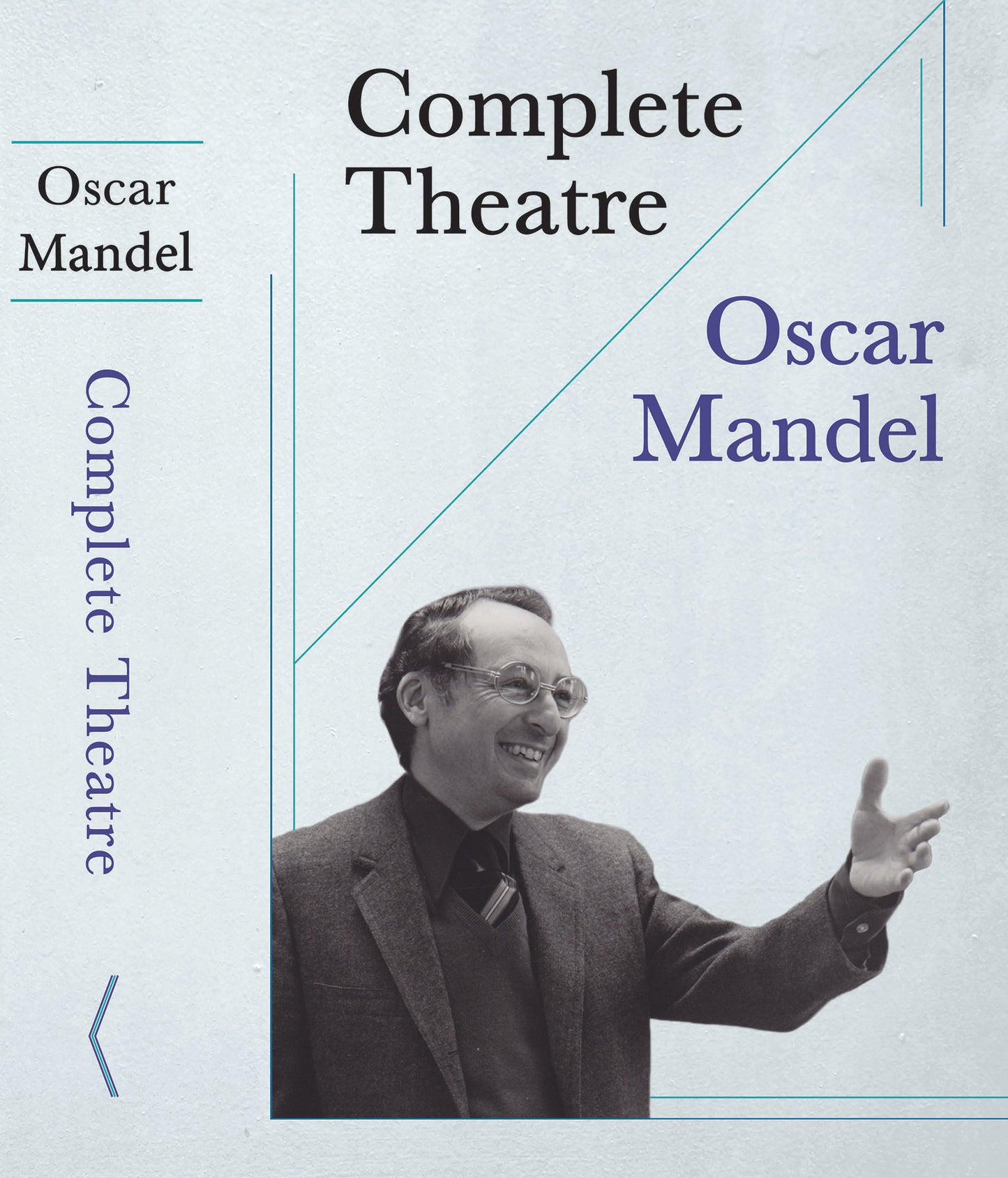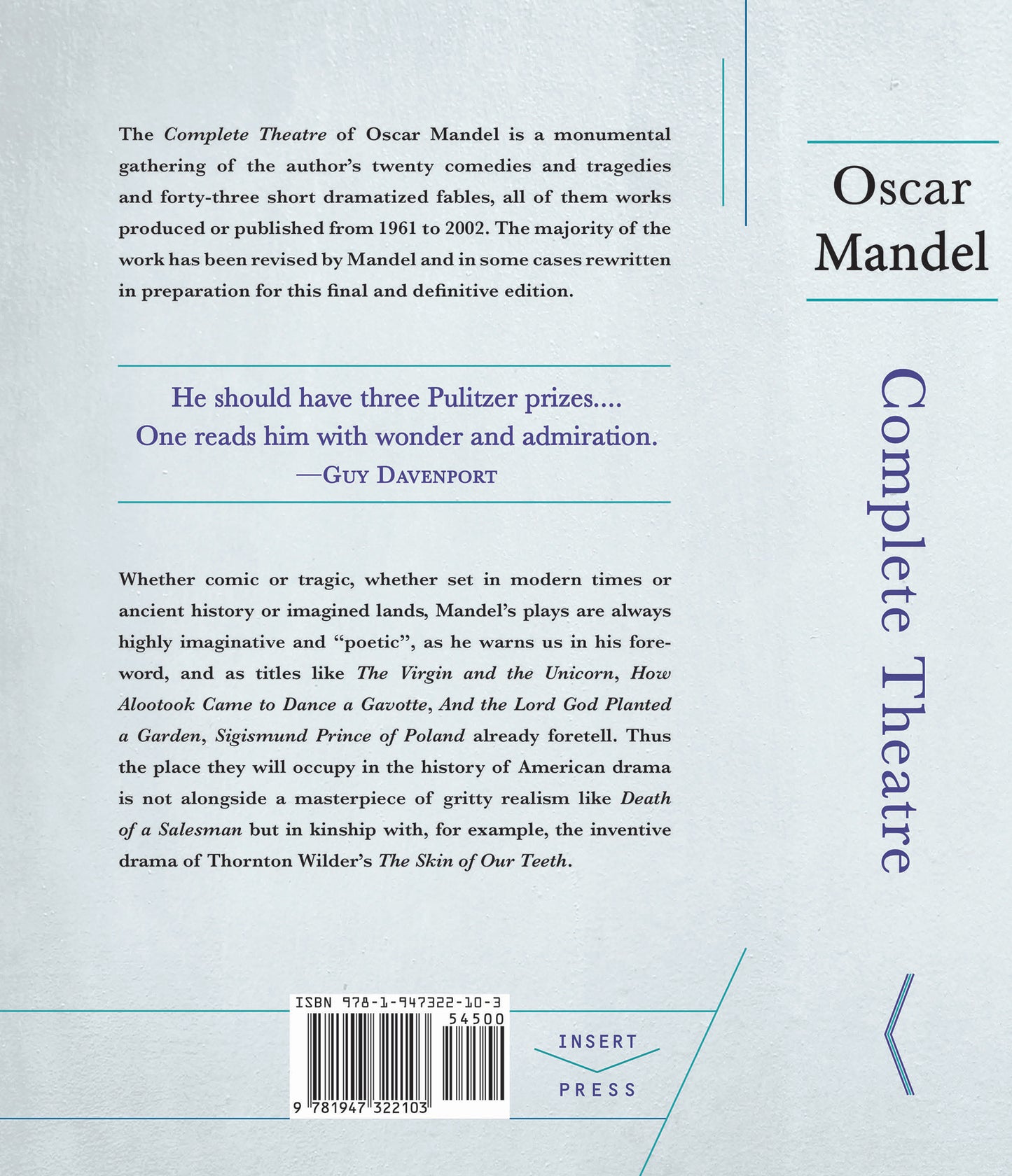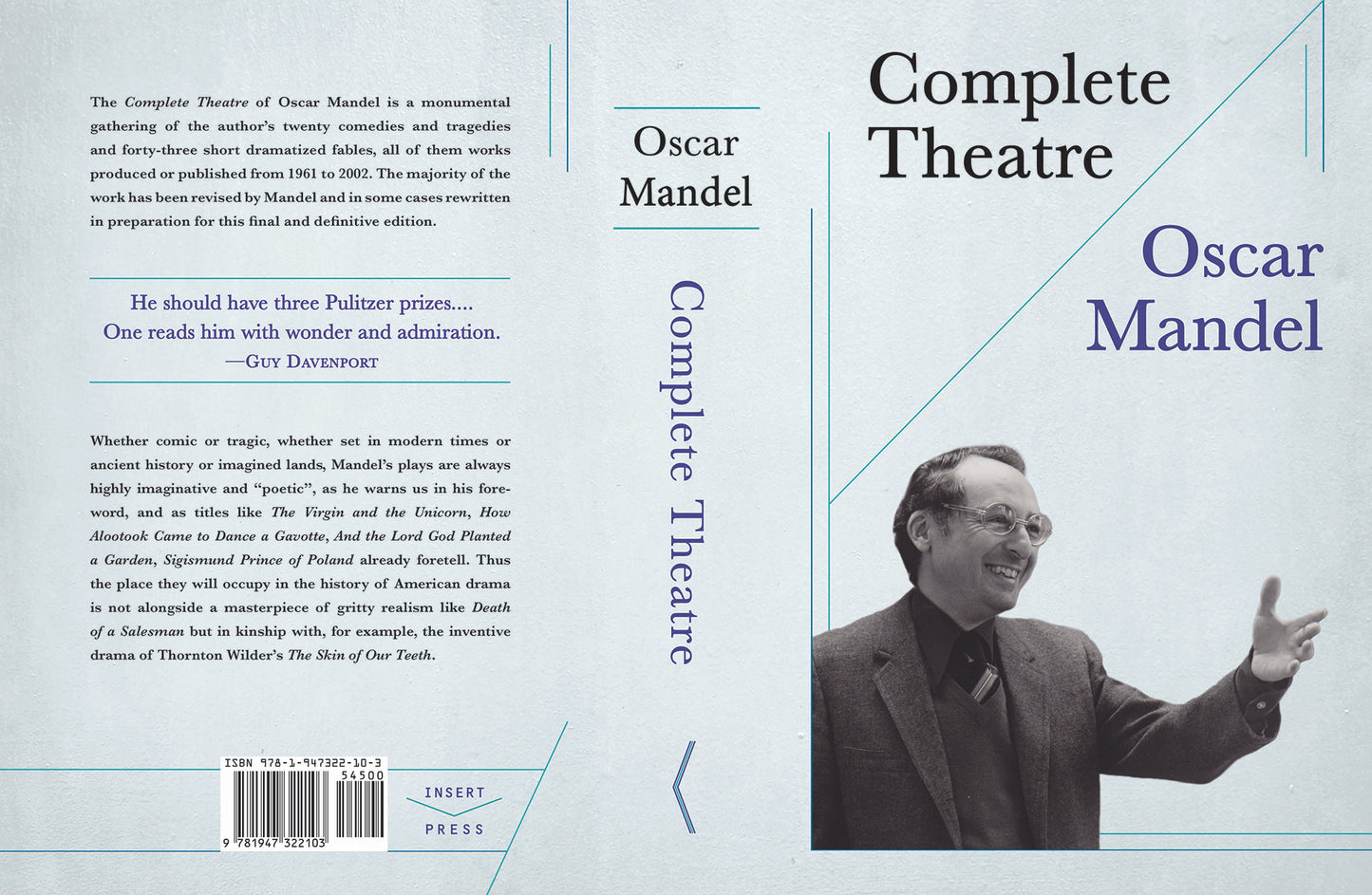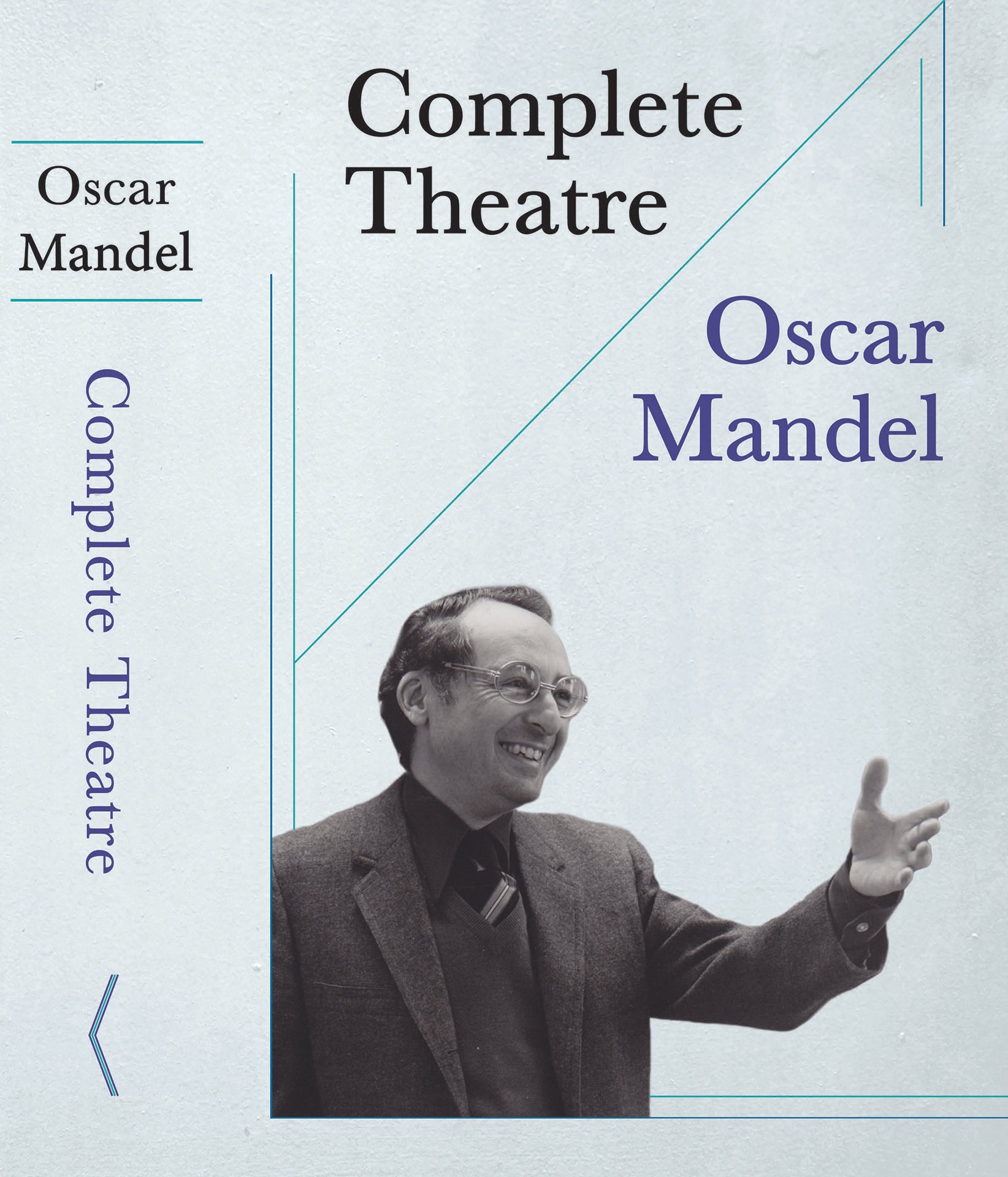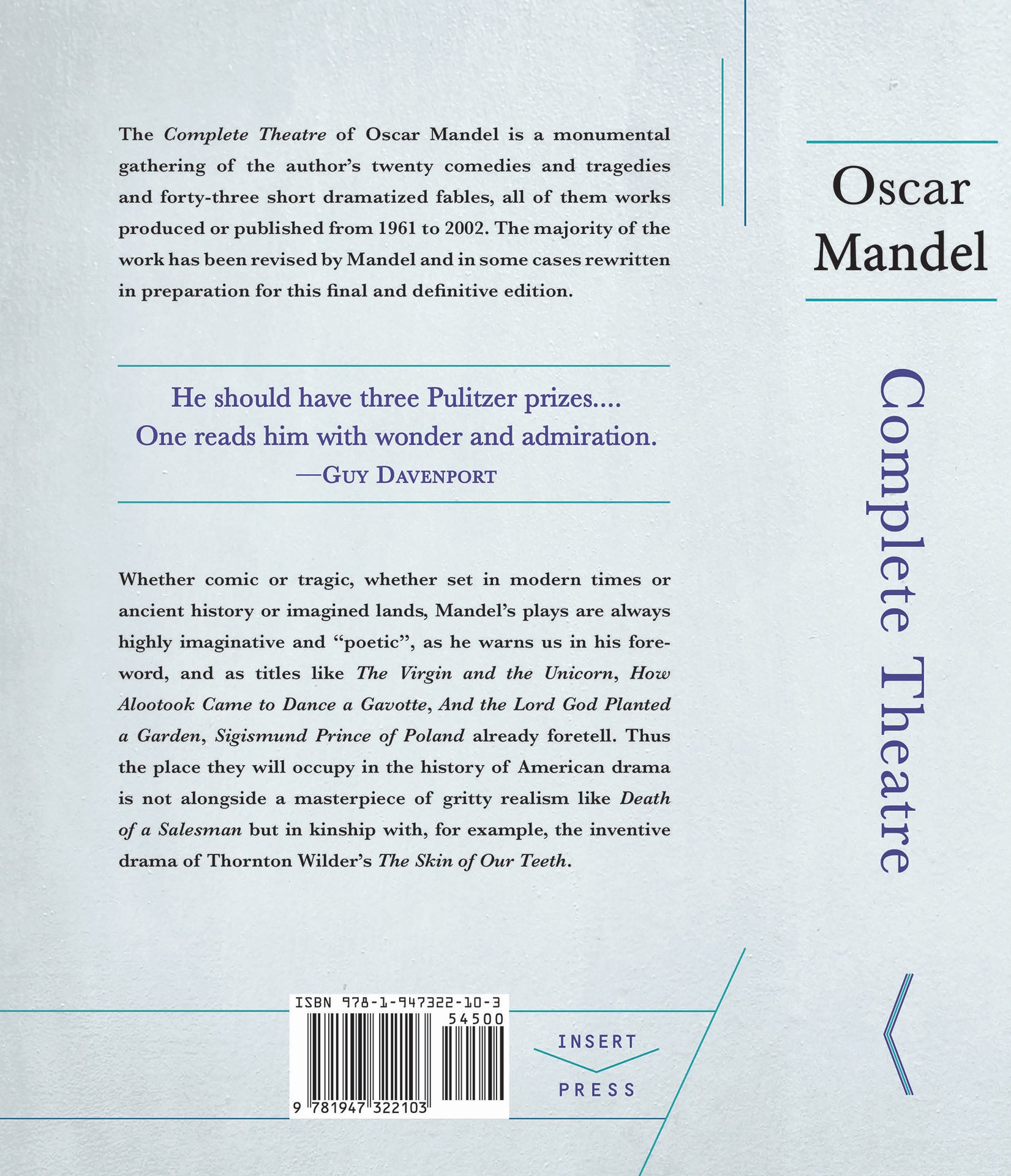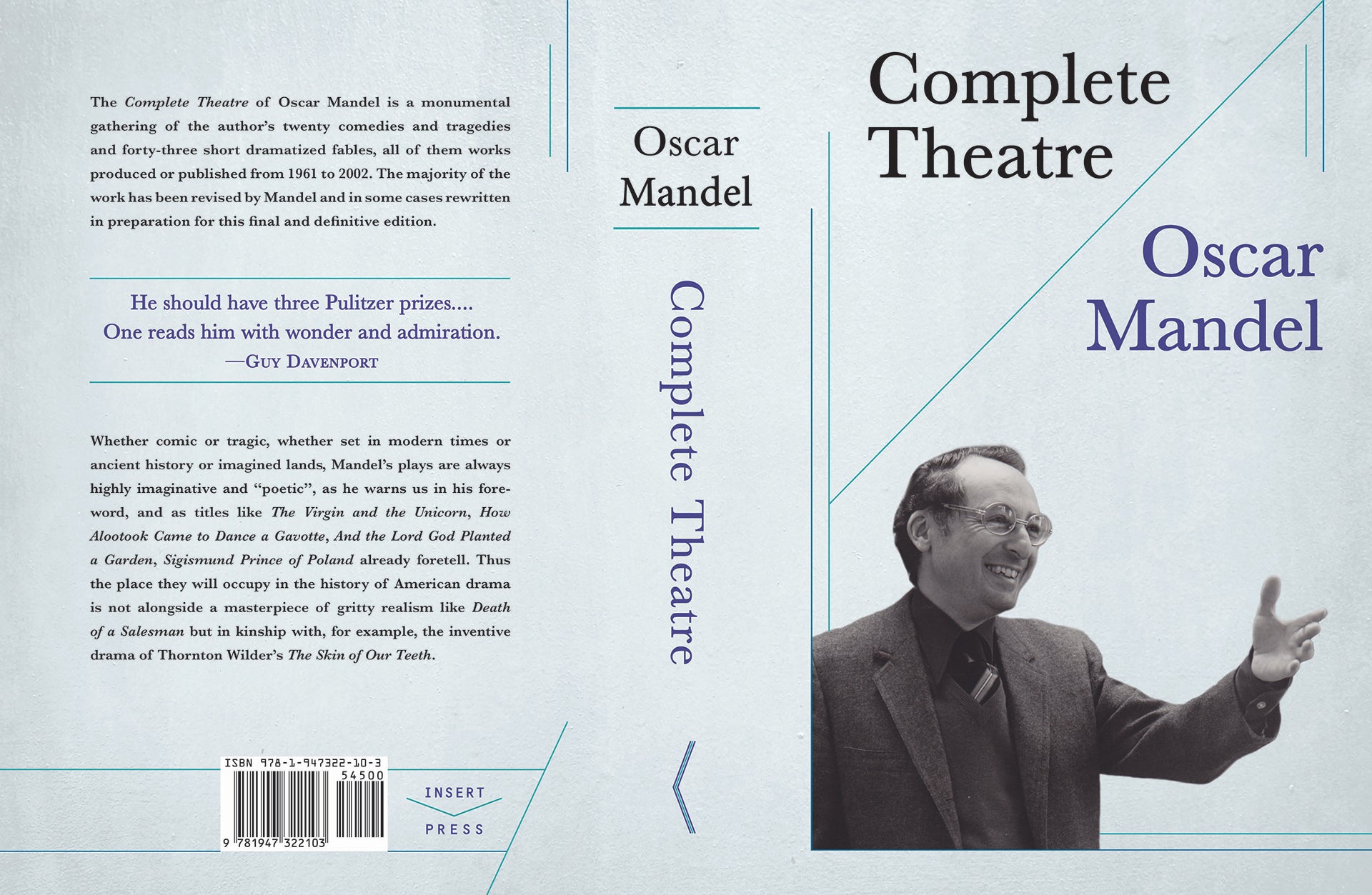Complete Theatre
Complete Theatre
Twenty Plays, Forty-Three Fables
Oscar Mandel
Couldn't load pickup availability
Paperback, 766 pages
Dimensions: 6.25" x 9.25" x 2"
ISBN: 978-1-947322-10-3
LCCN: 2023947673
Cover price: $45.00
A vast array of settings, some historical and some mythological, coalesce here into a vibrant portrait of an extraordinary artist. Through plays, poetry and fiction, essays, translation, and teaching, Mandel has led a life-long career of high imagination. This volume seeks to illustrate the many ways in which Mandel speaks to the perennial issues that interest and, all too often, bedevil mankind. The 766-page volume Complete Theatre contains the final versions of Oscar Mandel's twenty plays, produced and published over sixty years. This volume also includes the forty-three mini-dramas of Mandel's much-loved Kukkurrik Fables.
